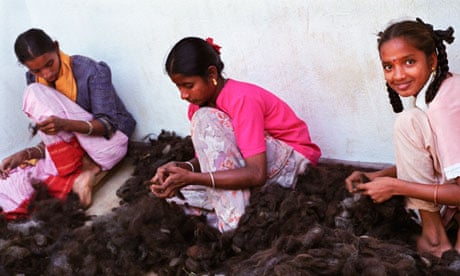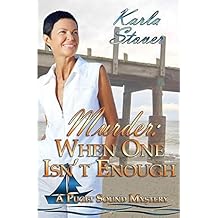I just finished a book where a Sikh taxi cab driver in New York gets involved in the hair imports market. Naturally, a mystery ensues. A rather unusual topic, I thought, but one that taught me something. Before reading the book, I never gave any thought to hair extensions--to how Britney Spears could be bald one day and have a full head of hair the next. I wonder if she was thinking about the where her extensions came from as someone was attaching them.
Right now, when women world-wide have jumped on the "me too" bandwagon and are fighting for equality with men, I recall something Caroline Cox wrote in
The Guardian. "When women try and change their role," she said, "their hair becomes short and chic like in the 60s and 20s, but when gender roles become more traditional, fake hair comes in. Extensions also reflect a retrogressive attitude towards women's place in society."
Which brings us to a controversial commercial
recently aired which compares actress Winona Ryder's comeback to the restoration of damaged hair. In the ad, Ms. Ryder has a beautiful head of hair. I wonder where she got it?
In 2010, a reporter named Scott Carney traced some of the ubiquitous tresses to Tirumala Tirupati Devasthanams, a temple in the Indian state of Andhra Pradesh. There men and women were separated and, as Mr. Carney waited his turn, he noted that "The pilgrim at the head of the line bows low as a man with a straight razor makes swift work of his curls." (the pilgrim's, not the barber's.) Hindus offer their hair as a way of thanking the gods for answering prayers, or to honor said gods. The majority of India's Hindus have had their heads shaved at least once. Writing for
motherjones.com, Mr. Carney found the shaving a disgusting business, noting that, the "Human hair contains all sorts of secretions, including sweat and blood, plus food particles, lice, and the coconut oil many Indians use as a conditioner. Put 21 tons of the stuff in a room blooming with mildew and fungus and the stench is overpowering."
 |
| Dieter Telemans/Panos |
/2016%2F02%2F16%2F55%2FGettyImages.2d6d1.jpg)

After it is cut, the hair--otherwise known as Black Gold--is carefully untangled, cleaned of all vermin, and washed in vats of detergent. When that is done, it is stored in warehouses until sold--curly hair to markets in Africa, straight hair to those in Europe, and both to the "cosmopolitan" United States. The sales bring in million to the temples; the pilgrims are generally paid little or nothing. It is the sacrifice that counts.
So here we are, with Ms. Cox's opinion, the me too movement, and long hair everywhere, often dragging down the faces of mature women. Perhaps, it is as Victoria (Posh Spice) Beckham said, "I love fashion, and I love changing my style, my hair, my makeup, and everything I've done in the past has made me what I am now. Not everyone is going to like what I do, but I look back at everything, and it makes me smile."
I think Ms. Beckham trumps Ms. Cox.


 https://bwlauthors.blogspot.com
https://bwlauthors.blogspot.com
Read more at: https://www.brainyquote.com/authors/victoria_beckham














/2016%2F02%2F16%2F55%2FGettyImages.2d6d1.jpg)












